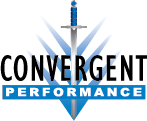This is the first of a series of posts that will provide, throughout the whole year, an improvement strategy that will cover the entire family of Nine Automation Airmanship® principles. This first post lays out the guidelines for a year of steady, disciplined improvement.
The New Year always brings us to a point of reflecting on past actions and their results, and how another year might bring improvement in areas from physical fitness to personal relationships to professional aspirations, just to name a few. Some of the questions we have asked since the New Year include these:
How can I get better in 2017?
Where do I need to improve?
Why would I want to improve at all, if in the past year I passed all my checks, submitted no safety reports, and didn’t get violated?
What’s holding me back from improving more than I have in even my “best” years?
It’s taken longer than usual this year to kick off our blog; but after going back to the drawing board a couple of times, we have decided to make this space more than just a place to come back to every once in a while for commentary on matters of automation, airmanship, and other challenges the new century has presented us with. This year our blog will connect the principles of Automation Airmanship® to a process of continuous improvement—along the same lines we have advocated for years—the kind of improvement that the best experts among us pursue, every day.
One of the reasons we created the Nine Principles was to give structure to the foundational elements of 21st-century airmanship that factor most in the business of modern flying. A closely related purpose was to create “an index of expertise” that could be used to measure our individual performance, arbitrarily, according to high standards of performance. Beginning with our February post, we will consider one principle at a time, place it in the context of contemporary airmanship, and hopefully give each reader some real openings into making their own flying safer and more effective.
To refresh your understanding of the Nine Principles of Automation Airmanship® (or even to introduce them for the first time, possibly), here they are, together:
- Planning
- Briefing and Debriefing
- Data Entry
- Communicating
- Monitoring
- Situational and Mode Awareness
- Workload Management
- Positive Flight Path Control
- Logic Knowledge
The science of expert performance has been gaining real traction in high-risk, high-reliability professions like ours. Constant improvement has always been a hallmark of professionalism; we all should be striving for higher personal performance. And there is no better advocate for the “Expert Performance” approach to personal improvement than Anders Ericsson, whose work we referenced throughout our own book in 2013. Last year Ericsson published his latest book, Peak: Secrets from the New Science of Expertise, which brought his research into high performance to many more readers, from many other industries and occupations. In his discussion of “The New Year’s Resolution Effect” Ericsson says there’s a big difference between willpower and motivation. Can’t we all relate to this:
“Getting started is easy…it’s exciting…it’s energizing. Then after a while, reality hits. It’s hard to find the time to work out or practice as much as you should, so you start missing sessions. You’re not improving as fast as you thought you would. It stops being fun, and your resolve to reach your goal weakens.”*
Ericsson goes on to say that “purposeful practice is hard work.” We know deliberate practice is hard. Still, we want to push ourselves further this year, get out of our comfort zones so we can learn more, and learn better. We hope you sign-on to this program… and just so you don’t end up only half-way there, we’ll keep it going for you.
In the meantime, look down the list of nine principles and ask yourself in which of those areas you can improve your performance.
Think about it.
Until our next post, fly safe, and always, fly first.
*Anders Ericsson and Robert Pool: Peak: Secrets from the New Science of Expertise. Houghton Mifflin Harcourt. New York. 2016.
